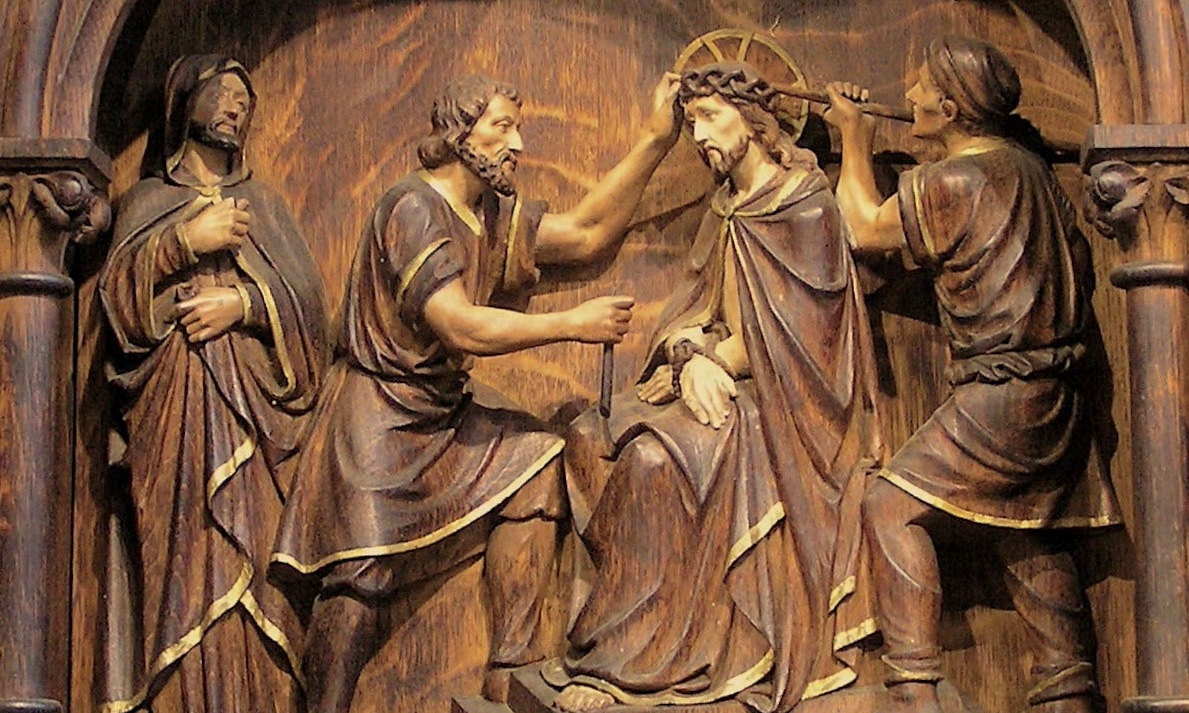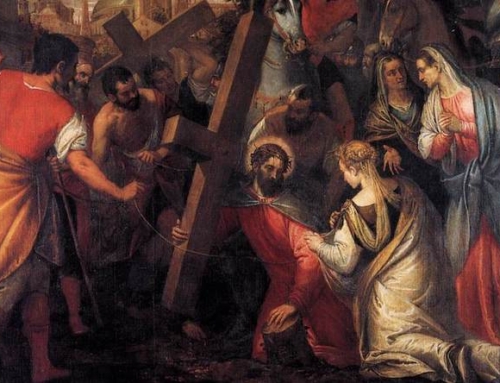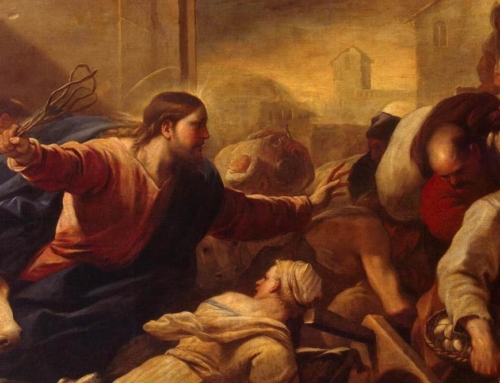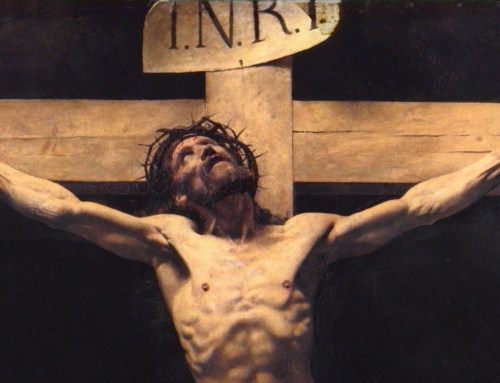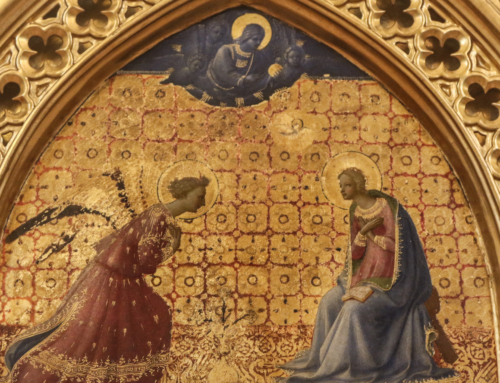So many of the cultural movements of our time have developed a theory of salvation that promises change and progress, if only they had more power. If only there were more support, they say, then the movement would be successful, then would the pining cease, then would there be peace among men. But these movements are mistaken. It is only Christ who brings about salvation for all men. It is only Christ who can bring about this peace because it is only in him that our hearts find rest, and it is only his truth that brings about reconciliation.
We encounter Jesus’ supreme authority throughout the Gospel, which is made more present to us when we pray the Rosary. “All the depth of the Gospel message in its entirety” is present in the Rosary (Pope St. John Paul II, Rosarium Virginis Mariae, 1; cf. Pope St. Paul VI, Marialis cultus, 153). Praying the Rosary can lead us to encounter the reality of Christ’s reign become manifest to us, and united in our faith we become united as one under such a great king.
If we consider a few of the mysteries of the Rosary, we can see how these mysteries show how Christ is king. As we consider these mysteries in relation to the Feast of Christ the King of the Universe, each of these events, in their own unique and mysterious way, becomes a crowning.
During his Passion, Jesus is crowned with thorns. Mocked rather than praised, he is pierced with the least glorious crown of all.
Jesus next takes up his cross just as any good king takes his throne—not amid shouts of joy (Psalm 47), but rather amid cries of mockery and curses. Rather than being perched atop of a plush and jeweled seat, he suffers under the weight of the wood of the tree. He suffers under the instrument of the first sin, the first offense against God, which now comes bearing down on him. Christ’s throne, the Cross, is not carried to him, but rather he carries it to us in order to conquer the reign of sin and death. This throne bears atop it the ensign of his office; his royal standard takes the form of the plaque bearing his crime: Jesus Christ King of the Jews.
Even as he suffers his crucifixion, he carries out his royal duty of judging, pardoning (Luke 23:39–43), and caring for those who love him when he entrusts his mother and John to each other (John 19:26–27). By his Resurrection, Jesus shows that he is not subjected even to the bonds of death and that he will overcome those strongest of bonds even in us, his subjects.
Just as a king ascends his throne to begin his reign, so too does Christ ascend to Heaven. Christ assumes his place at the right hand of the Father, from which he rules unbounded by space or time—unlike any earthly kingdom. Rather, his kingdom stands ever present to all men.
In the mystery of Pentecost, Christ is crowned in a different way. It is the tongues of fire crowning the apostles (Acts 2:1–4), who minister to his subjects in his name. Christ crowns his own body, the Church. The apostles as the head of this body bear this crown of the Holy Spirit. Just as the Holy Spirit came upon Christ at his baptism, when God proclaimed, “This is my beloved son in whom I am well pleased,” so too are the apostles crowned with the Holy Spirit and immediately go out to preach his kingdom to the amazement of all of Jerusalem (Acts 2:5–47).
United as citizens of Christ’s kingdom, we pray the most Holy Rosary asking that the graces of each mystery become fully alive in us, just as they did for the apostles who witnessed them. Like them, we come to the king of kings and cannot help but go out and proclaim the glories of this kingdom to all men.
✠
Image from the Dominican House of Studies chapel.

